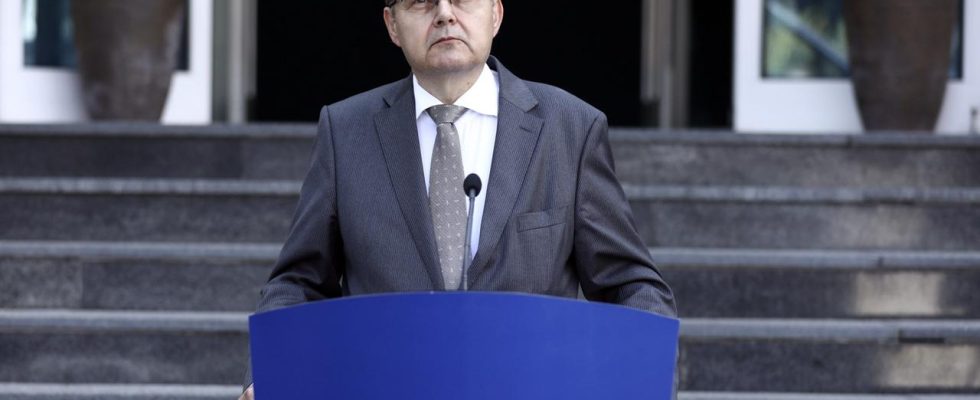In Bosnia and Herzegovina, High Representative Schmidt overturned two decisions of the regional parliament of the Republic of Srpska. The Bosnian-Serb part of the country has long been accused of seeking secession.
New tensions are looming in the multi-ethnic Balkan state of Bosnia and Herzegovina: Christian Schmidt, a former Federal Minister and now the country’s High Representative of the international community, has overturned two parliamentary decisions by the Serb-majority part of the country.
The recent decisions of the parliament of the Republic of Srpska are a clear violation of the constitutional order of Bosnia and Herzegovina and the Dayton Agreement, said Schmidt in Sarajevo.
As High Representative, Schmidt has the power to amend laws and enforce decisions to ensure that the country’s politicians are committed to maintaining peace and promoting reconciliation.
quarrel in constitutional court
The members of the Bosnian Serb parliament voted on Tuesday to no longer recognize the decisions of the country’s constitutional court. The court had previously changed its own statutes so that it can henceforth meet without Serbian judges. The decision followed a refusal by the Bosnian parliament to fill a vacancy on the court’s bench.
A week ago, parliament also passed a law intended to circumvent decisions made by Bosnian representative Schmidt.
Both decisions have now been overturned by Schmidt.
Tensions in Bosnia and Herzegovina
Bosnia and Herzegovina is a successor state to the former Republic of Yugoslavia. In 1992 there was a referendum in which 99.7 percent of voters voted for independence. However, many Bosnian Serbs, who made up about a third of the almost 4.5 million inhabitants of the sub-state at the time, boycotted the vote.
A war then broke out that lasted until 1995. The intervention of the United Nations and NATO ended the conflict. In November 1995, the warring parties finally gave their consent to the Dayton Peace Agreement, which came about with the participation of the European Union and the USA. The constitution of the country is laid down in this peace agreement.
Since then, Bosnia and Herzegovina has consisted of two parts: the Federation of Bosnia and Herzegovina and the Republika Srpska. A special status was granted to the border district around the town of Brčko. The parts of the country are connected by a common central government, which, however, has only limited powers.
federal government sees breach of Dayton Accords
The US Embassy in Sarajevo said the US supports the sovereignty, territorial integrity and multi-ethnic nature of Bosnia and Herzegovina. “Individuals” who campaigned against the Dayton Agreement would be “held accountable for their actions”. British Ambassador Julian Reilly said the recent moves by the Republic of Srpska posed a threat to the country’s stability.
On Friday, the federal government criticized that the decisions of the regional parliament endangered the unity of the country. “The decisions of the court are final and binding and must be respected,” said Foreign Office spokesman Christofer Burger. Like the EU Commission, the federal government is therefore holding back “financial support for large infrastructure projects in the Republic of Srpska”.
One country, two parts of the country
In Bosnia and Herzegovina, almost 30 years after the end of the Balkan War, there are still considerable tensions between the ethnic groups of Serbs, Croats and Bosnian Muslims. On the part of the Bosnian Serbs in particular, there are tendencies towards secession or joining Serbia.
The country is divided into the Republic of Srpska, inhabited mostly by Bosnian Serbs, and the Federation of Bosnia and Herzegovina, in which the majority Muslim Bosnians and Croats live. Both parts of the country are linked by a weak central government.
The President of the Republic of Srpska, Milorad Dodik, has been pushing for secession efforts in the Republic of Srpska for a long time. Russia is accused of supporting these efforts.
The European Union officially admitted Bosnia and Herzegovina to the group of candidate countries in 2022.

